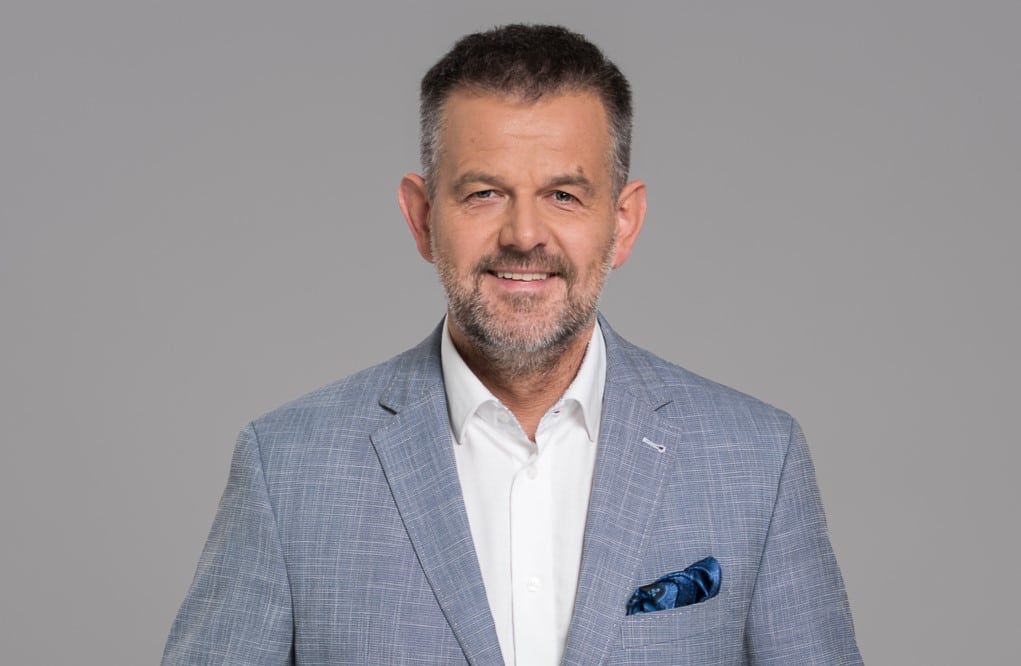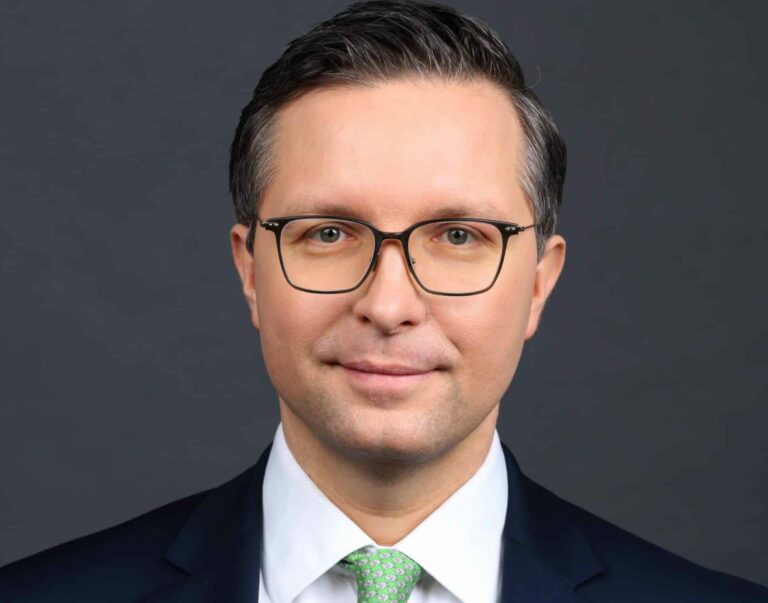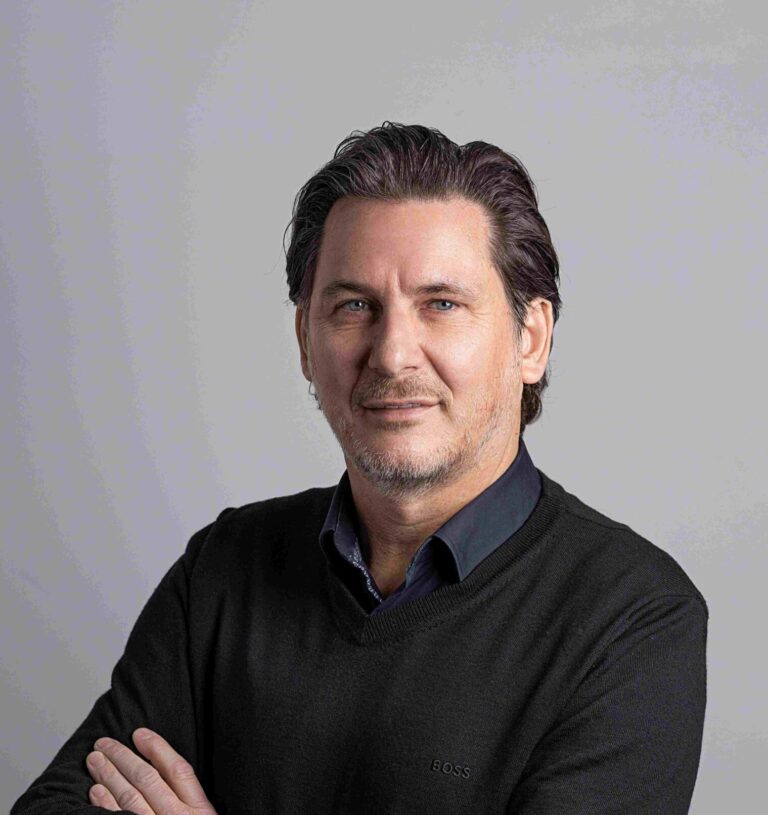Supporting the transformation of the transport industry
Interview with Michal Gwiaździnski, General Manager Fleet and Mobility Poland at UTA Edenred.
This year UTA Edenred is celebrating its 60th birthday. Poland’s position in Europe, particularly in the TSL sector, has changed a lot over the last few years. The TSL industry generates 6 proc. of Poland’s GDP and is a leader among EU countries. What factors and trends shape this industry and account for its strength?
Today, to the best of my knowledge, it is already reported to be around 7 proc. However, focusing on the main thrust of your question, UTA Edenred is at a special point in its activities. We have been providing services for transport for 60 years. The roots go back to Union Tank, a company founded in 1963 in Germany. Today, operating under the UTA Edenred brand, we are part of a global group, a world leader in providing clearing services for the food, mobility and corporate payments sectors. Over the years, the company has significantly expanded its range of services and solutions, as well as its international reach. Where we are today, where the transport industry is, and I would point out that no other industry has been so successful after Poland’s accession to the European Union, depends on several factors. First and foremost is Poland’s location on the map of Europe. We are a transport hub located very close to the most important communication and trade routes. The second factor is the rapidly growing economy with an average growth rate of 3.3 proc. Poland is the leader in this respect among the large countries of the European Union. Also of significance is the share of industry in Polish GDP, which amounts to 25 proc., while in most EU countries this share is more like 20 proc. Also significant is the very dynamic growth in exports, reaching, in terms of pace, even 7 proc. per year. Finally, a factor that was particularly important after Poland’s accession to the European Union, i.e. the very rapidly increasing dynamics of exports of transport services to other European countries.
We are living in interesting times. A lot is happening economically and geopolitically. What is the future outlook for the industry?
In answering this question, I have to refer to the challenges the transport industry is facing, and it seems to me that there haven’t been as many as there are at the moment. There are the challenges posed by the pandemic, which has affected the shortage of electronic components, for example, which is affecting many manufacturing companies in Europe. It is also significantly affecting the transport industry. These electronic components are one of the most important elements for the automotive industry, which is not only one of the larger customers for transport, but also one of the larger suppliers. Certainly, Russia’s invasion of Ukraine is also a challenge shaping and influencing what happens next for Polish transport. Through various geopolitical factors, there has also been a significant reduction in the supply of energy raw materials, and consequently a jump in fuel prices, but also restrictions on the production capacity of many European companies. Another element that is shaping today’s changes is the challenge of the Mobility Package. It affects how efficient Polish transport is, as specific restrictions have emerged. Of course, it also affects costs. The new EU environmental regulations, which are on the eve of being introduced, should certainly also be mentioned here. The new ambitious targets for limiting carbon dioxide emissions, eliminating the technology that is the source of these emissions, also have very specific financial effects. As a result, the cost of accessing road infrastructure is expected to rise dramatically. The toll prices in Austria and Germany, for example, are set to almost double. In addition, the new standards cannot be met without a corresponding transformation of the vehicle fleet. The transport industry will have to transform itself and move away from vehicles with conventional fuels towards vehicles with alternative fuels. There is another factor I would like to mention, which relates to the situation in Ukraine. We expect closer integration of Ukraine into the European Union at some point in the future and, as a result, this also means that we will have to face up to Ukrainian transport, which will certainly be more competitive in terms of costs.
You mentioned environmental and sustainability issues. How are you preparing your company and how are you preparing your customers for the implementation of new regulations?
We are seeing increasing interest from our customers in the topic of sustainability. So we have developed a proprietary program called UTA Edenred Move for Good, in which we combine a number of solutions, products to support the transport industry in its transformation towards more efficient and greener mobility. These are products like UTA eCharge, which is to enable commercial charging of electric vehicles. This is UTA Carbon Offset, our new product to enable the reduction of the carbon footprint generated by our customers’ vehicles. We are also moving towards replacing our plastic cards with mobile apps. And, of course, we also have a range of digital solutions on offer to support our customers in their day-to-day challenges, enabling them to manage their fleet of cars and trucks.
What other products in UTA Edenred’s portfolio support the development of mobility in Poland?
What we want to offer our customers is to face the challenges facing the transport industry together on a daily basis. The requirements of our customers in the transport and mobility sector today go far beyond simply supplying energy for their vehicles. Today, the market expectation is to present a broad spectrum of solutions, services and products. And this is exactly where we are heading, offering not only the widest acceptance network in 40 countries, but also the possibility of cashless purchases of both conventional and alternative fuels. We offer our customers the full spectrum of solutions for road billing and tolling in 27 countries, including noteworthy facilities within the European Electronic Toll Service. We also provide solutions to assist businesses in their digital transformation.
Referring to the international aspect of UTA Edenred’s operations, what place does Poland occupy in the company’s European portfolio and how does this international know-how affect its operations in the country?
We want to offer customers in Poland all the products and solutions that UTA Edenred offers – today not all the elements of our sustainability program are already available in all the countries where UTA Edenred is present, but we are constantly expanding our offer to other countries including Poland. Poland has absolutely always been, is and will continue to be one of the main countries in which UTA Edenred operates. We want to continue to develop and provide our customers with the most advanced solutions possible. We want to use the international know-how you mentioned to further develop digital solutions that will support our customers every day. We want to continue to expand the acceptance network very strongly, to support Polish entrepreneurs with the best devices within the EETS system. I am of course talking here about the UTA One next next device. Even though it is already the market leader today, we want to develop it further. What is also very important for us is to support entrepreneurs in achieving sustainable development, i.e. providing solutions that will make it easier to go through this very difficult process.







